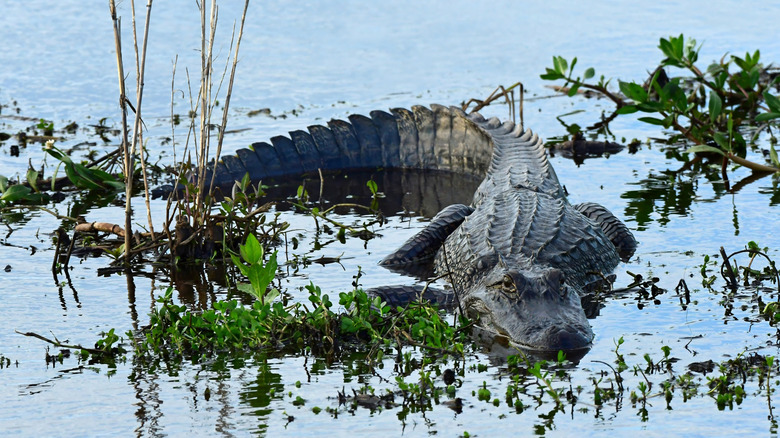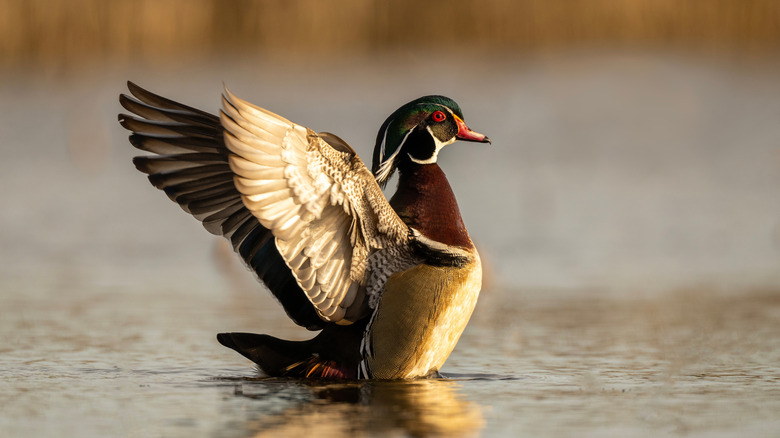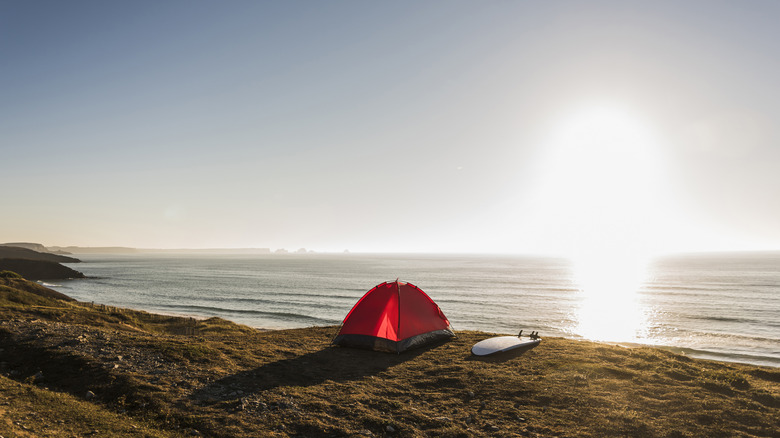Texas' Large Wildlife Refuge On The Gulf Coast Is A Free-To-Visit Wildlife Watching Gem With Serene Marshes
Stretching an impressive 58,861 acres, the McFaddin National Wildlife Refuge in Texas is a natural gem worth visiting at least once. The refuge is home to the largest freshwater marsh on the Lone Star State's coast (not to be confused with Caddo Lake's gothic swamps) as well as 27 different duck species, more than 80,000 snow geese, and even alligators. McFaddin is open daily from sunrise to sunset and there's no admission fee to enjoy the many outdoor activities it offers.
This marshy refuge was established in 1980. While it might seem tailored for only bird and wildlife enthusiasts, there are plenty of things to enjoy. Visitors can partake in fishing, hiking, and boating just to name a few. Also, the many roads spread across the refuge are great for enjoying a quiet drive surrounded by nature.
The McFaddin National Wildlife Refuge is located very near to the Louisiana border. Nearby towns include Sabine Pass roughly 15 minutes away as well as Port Arthur half an hour to the north. The refuge can be accessed by driving on Highway 8. Houston is just under two hours away. As such, the George Bush Intercontinental Airport (IAH) is a good option for flying into the area even if it's known for having long TSA wait times.
Enjoying McFaddin National Wildlife Refuge's marshy outdoors
One of the main activities to enjoy at this refuge is wildlife watching, especially the hundreds of thousands of waterfowl that can be found here. Visiting the refuge's Clam Lake between the fall and spring months will give you a front-row view of the mottled ducks, roseate spoonbills, and wood ducks in the area. If you're lucky, you'll also be able to glimpse McFaddin's local alligators — be cautious when approaching the water!
Aside from engaging in wildlife and bird watching and photography, the refuge is great for partaking in watersports such as boating, fishing, and crabbing. You'll find plenty of boat ramps in designated areas such as Clam Lake, Ten-Mile Cut, Five-Mile Cut, and Star Lake. For fishing at the refuge, state regulations — which include having a fishing license — need to be followed to a tee. Approved fishing and crabbing points include the Gulf's coast, Clam Lake, Mud Bayou, Mud Lake, and Ten-Mile Cut which are open year-round.
You'll also find plenty of hiking opportunities within the refuge's marshes. There are around five miles of roads that lead to piers and observation platforms. The best part is that if you don't feel like walking, you can also drive on said roads. Local wildlife is often spotted on the trails, so don't forget to bring your camera.
Camping at McFaddin National Wildlife Refuge and other nearby accommodations
Another highlight at McFaddin is that camping is allowed on the shores of McFaddin Beach. The beach is open for public access, with the Sea Rim State Park — Texas' underrated summer escape — a short five minute drive away. Sea Rim actually offers visitors a very unique camping experience: a floating campsite. This area can be accessed from the park's boat ramp by paddling for about two miles. However, there is an entrance fee of $15 and no facilities to make use of, so you will need to bring your own supplies.
For those seeking more comfortable accommodations, budget-friendly options can be found in Port Arthur. Hotels such as the Mainstay Suites Port Arthur offer guests comfortable rooms equipped with kitchenettes, free breakfast and parking, as well as access to their fitness center. Several travelers on Tripadvisor have noted cleanliness issues in certain areas of the hotel, though, so keep that in mind.
Other hotels like the Days Inn & Suites by Wyndham Port Arthur or the La Quinta Inn & Suites by Wyndham Port Arthur seem to have much better reviews. Both options offer guests similar amenities as the aforementioned hotel. La Quinta Inn is also in close proximity to restaurants in the area such as the Saltgrass Steak House and Texas Roadhouse.


